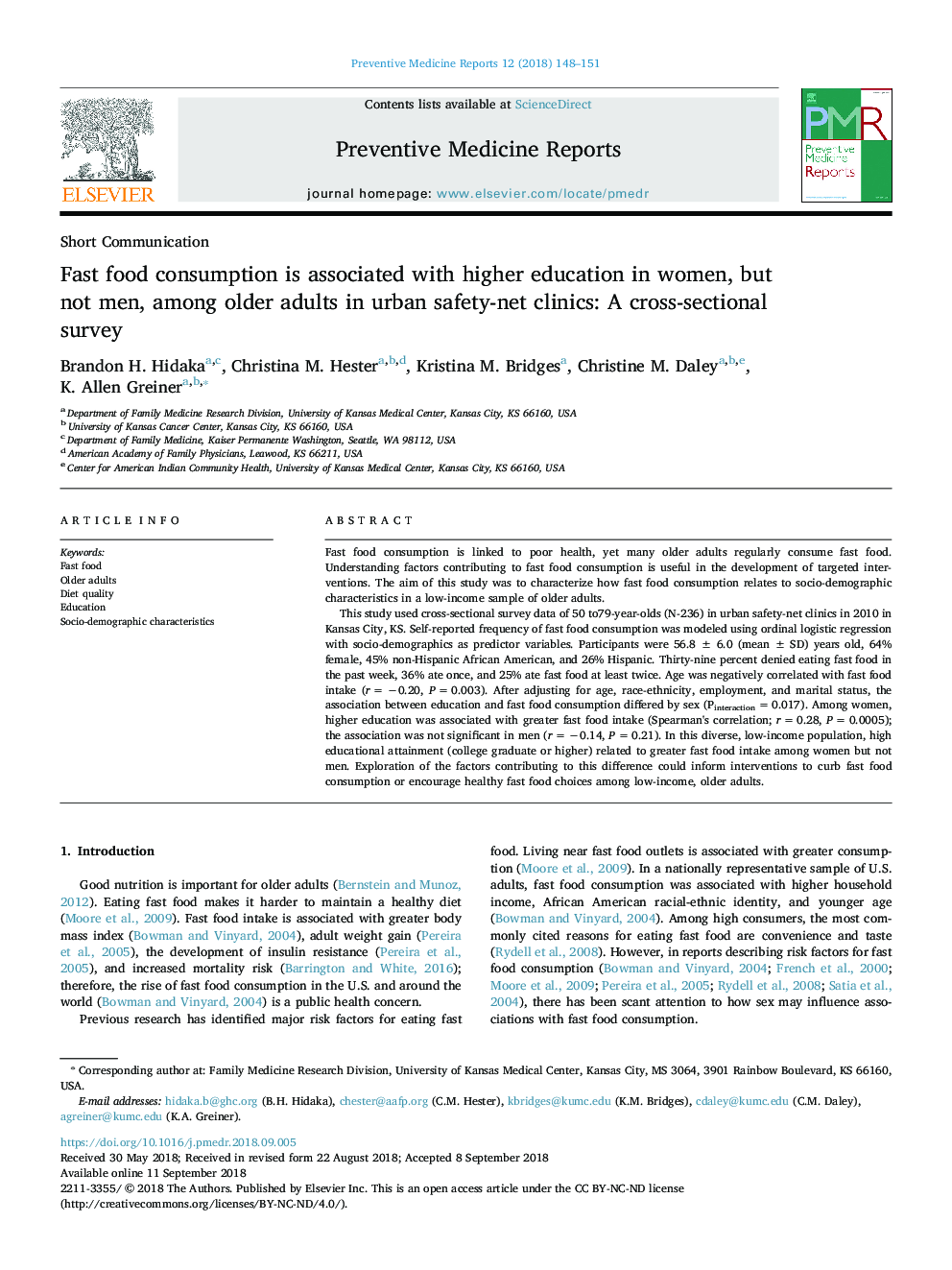| Article ID | Journal | Published Year | Pages | File Type |
|---|---|---|---|---|
| 11033531 | Preventive Medicine Reports | 2018 | 4 Pages |
Abstract
This study used cross-sectional survey data of 50 to79-year-olds (N-236) in urban safety-net clinics in 2010 in Kansas City, KS. Self-reported frequency of fast food consumption was modeled using ordinal logistic regression with socio-demographics as predictor variables. Participants were 56.8â¯Â±â¯6.0 (meanâ¯Â±â¯SD) years old, 64% female, 45% non-Hispanic African American, and 26% Hispanic. Thirty-nine percent denied eating fast food in the past week, 36% ate once, and 25% ate fast food at least twice. Age was negatively correlated with fast food intake (râ¯=â¯â0.20, Pâ¯=â¯0.003). After adjusting for age, race-ethnicity, employment, and marital status, the association between education and fast food consumption differed by sex (Pinteractionâ¯=â¯0.017). Among women, higher education was associated with greater fast food intake (Spearman's correlation; râ¯=â¯0.28, Pâ¯=â¯0.0005); the association was not significant in men (râ¯=â¯â0.14, Pâ¯=â¯0.21). In this diverse, low-income population, high educational attainment (college graduate or higher) related to greater fast food intake among women but not men. Exploration of the factors contributing to this difference could inform interventions to curb fast food consumption or encourage healthy fast food choices among low-income, older adults.
Related Topics
Health Sciences
Medicine and Dentistry
Public Health and Health Policy
Authors
Brandon H. Hidaka, Christina M. Hester, Kristina M. Bridges, Christine M. Daley, K. Allen Greiner,
